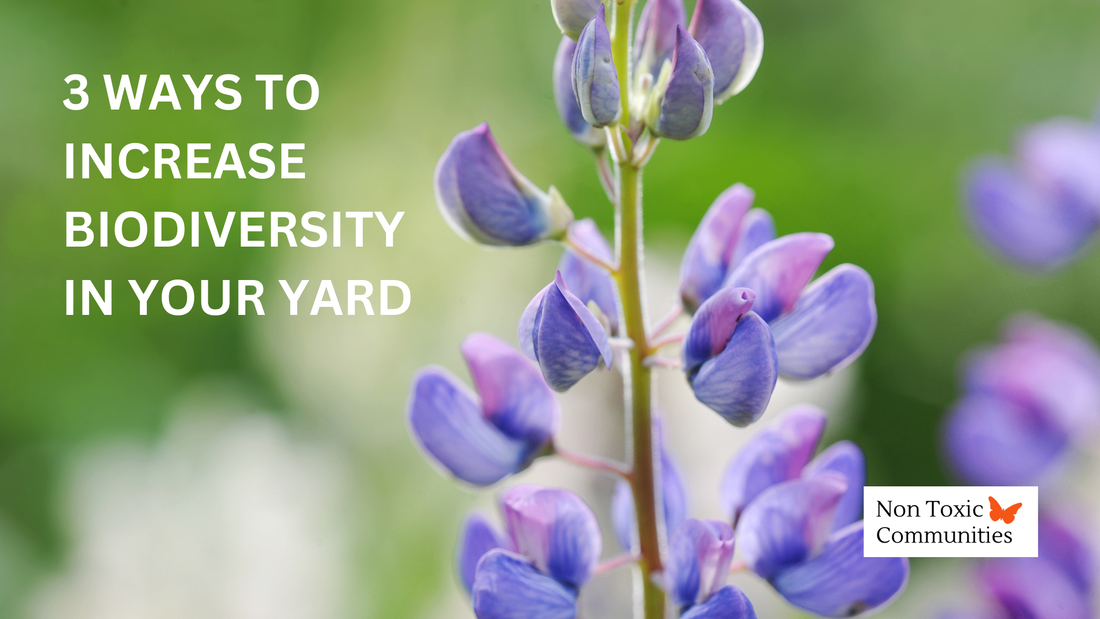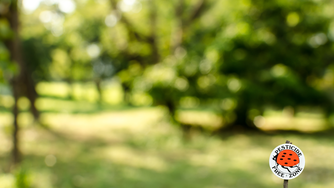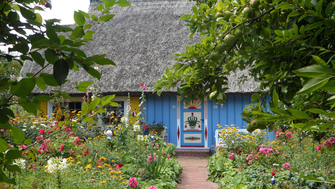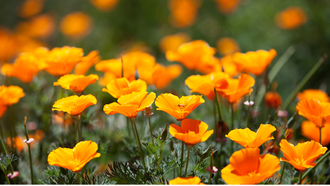|
Human activity has resulted in a planetary crisis. This is very serious, though not hopeless, but we must act. Land use change drives about 30% of biodiversity loss, so not only is it the largest contributing factor, it is also one that we can control. Any improvements we make on the small scale can have a collective impact. Even if you don't own any land yourself, these practices can be implemented in your community parks, schoolyards and private land areas to contribute to planetary health. 1. GO ORGANIC Organic land care is a must if you want to regenerate and protect our environment. Organic practices begin with soil health. Cultural practices are also a key component of managing a landscape organically. Learn about organic land care: Homeowner Resources Landscapes Organic Land Care Project 2. SHRINK THE LAWN Turf grass is an ideal eco-friendly and durable surface for athletic playing fields, but we typically have more lawn than we use or need around our homes. Why not shrink the lawn area and plant a pollinator garden? In some areas of the country, removing the lawn and replacing with drought tolerant landscaping is encouraged. Take a few minutes to assess your landscape and decide how much (if any) lawn you need, and begin a plan to design some gardens! 3. PLANT NATIVE Chances are, many of the plants you find at the local nursery will not support biodiversity, and some may even harm it! Yes, non-native, and even invasive species may be sold to consumers in a garden store or online. Buyer beware! Just because we find a plant appealing, doesn't mean it will be beneficial to our native wildlife. A minimum of 70% plants native to our ecoregion are required to support nesting birds.
Keystone species like oak trees can support over 500 different lepidoptera (moth and butterfly) species by providing food for their larval stages (caterpillars). That's food for baby birds! Find keystone plant species for your ecoregion here. The more native plants you can add, the better! Insects are declining at an alarming rate! Many of our pollinators are threatened or endangered, like the rusty-patched bumblebee and the monarch butterfly. The indigenous plants that evolved with these pollinators and other wildlife are what will best support them to increase their numbers, since they provide precisely the food and habitat they need and at the right times. Climate change is creating more challenges for our pollinators and they need us to restore habitat now more than ever. No yard is too small. Every yard and every person can help! Read more on our Biodiversity page. Comments are closed.
|
Archives
March 2024
Categories |
|
Non Toxic Communities is a 501 (c) (3) charitable organization
Nontoxic Communities Foundation, Inc. dba Non Toxic Communities Copyright © 2024 Non Toxic Communities - All Rights Reserved Site design by Bee Rooted | About Us | Contact Us |




 RSS Feed
RSS Feed
